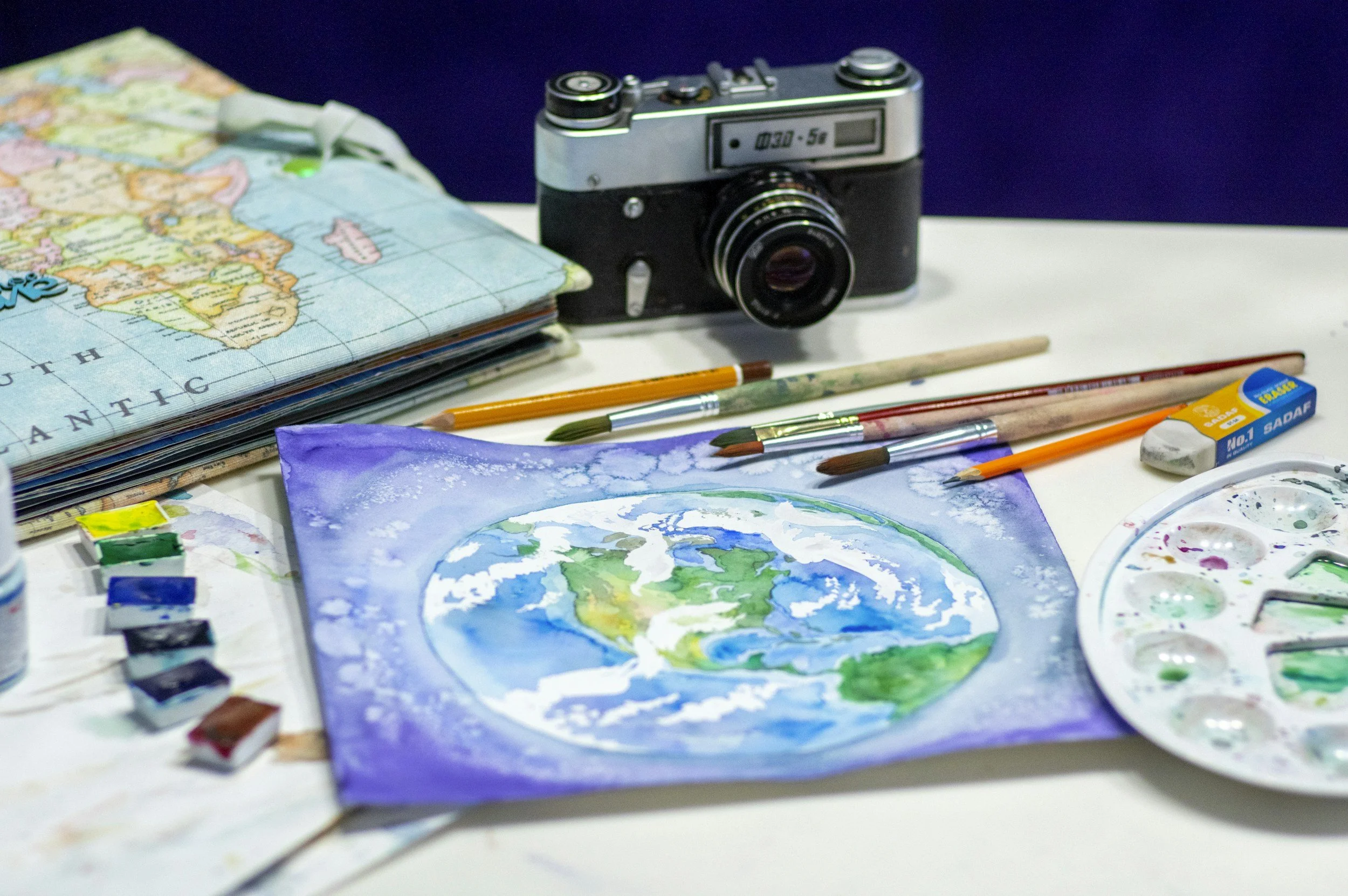A guide to travel as therapy to feel better through exploration
A quick disclaimer: I’m not a psychologist or therapist, and I can’t say travel has personally healed me yet. But I’ve always believed in its transformative potential.
Travel to heal – that’s what travel therapy is all about. But how does it work, why does it work, and how can you make the most of it?
Ever since humans began wandering, we’ve turned to movement for meaning. Journeys have long been intertwined with renewal – from pilgrimages to solitary walks, from voyages across seas to weekend getaways.
It’s fascinating, isn’t it? That stepping into a new landscape, or simply watching the horizon shift, can make the mind feel a little lighter.
Let’s take a closer look at how travel, when approached with intention, can become a form of therapy that helps calm the mind, lift the spirit, and offer new perspectives.
What is travel therapy?
Travel therapy refers to using travel as a way to refresh the mind, restore balance, and gain inner perspective. It’s about engaging with new surroundings, stepping out of routine, and embracing the unfamiliar in ways that create space for clarity and calm.
One common expression of this is the mental health vacation: taking time away specifically to decompress and reset.
Unlike clinical therapy, travel therapy doesn’t involve structured sessions or a professional guide. It’s a more intuitive kind of healing that unfolds through destinations and experiences. Dr H. Steven Moffic describes travel as a “therapeutic lifestyle”, suggesting that intentional journeys may nurture empathy, reflection, and renewal.
Research supports this, finding that reduce stress, allow us to detach from daily routines, foster personal growth, and enhance open-mindedness and resilience – benefits that often linger long after the trip ends.
Of course, travel shouldn’t replace therapy or medical treatment. But it can complement them as a way of tending to the mind through movement and curiosity.
Humans have always journeyed, partly to escape, partly to seek, and partly just to see. If we approach travel with intention, it may become one of our most grounding tools for mental wellbeing.
The benefits of travel for mental health
The benefits of travel are often described in terms of adventure or escape, but travel can also nurture the mind. In many ways, its effects overlap with what we seek through therapy or reflection.
1. Travel helps reduce stress and improve mood
Travel gives us a chance to step away from the routines of work and daily responsibilities that drain us. A change of place, even briefly, can feel like a reset button for the mind.
Time spent away from familiar surroundings allows us to slow down, breathe differently, and notice simple things again – light on water, new sounds, unfamiliar scents. These small sensory shifts can calm the nervous system and ease emotional tension.
Many people also find that travel lifts their mood long before or after the trip itself. The anticipation of going somewhere new, and the lingering sense of freedom when we return, both play a part in restoring balance and perspective.
2. Travel increases happiness and life satisfaction
Travel often brings a sense of excitement that starts long before the journey itself – in the planning, the imagining, the small countdowns to departure. These moments of anticipation can lift our spirits just as much as the trip.
Once we’re on the road, travel fills us with novelty and surprise, both proven to enhance happiness and overall life satisfaction. Exploring new places helps break the monotony that can dull our everyday lives, giving us fresh stories and memories to hold onto.
Even after returning home, many people describe a afterglow – a renewed sense of energy, appreciation, or perspective. The memories of a good trip tend to stay with us, reminding us of how much joy can come from simply being curious about the world.
3. Travel sparks creativity and inspiration
Travel has a way of waking up the imagination. New sights, sounds, and rhythms remind us that the world is full of colour, contrast, and possibility. Even small moments, like overhearing a conversation in another language or noticing the texture of a market street, can plant seeds of new ideas.
When we step outside our routines, our minds begin to wander differently. We connect patterns, think more freely, and see ordinary things in new ways. For many people, travel becomes a catalyst for creativity – not because it gives us answers, but because it opens us to see everything, including ourselves, with fresh eyes.
4. Travel sharpens focus and mental clarity
When we travel, our senses heighten. We pay closer attention to details because everything feels new. This kind of awareness can clear mental fog and bring sharper focus. Away from familiar distractions, the mind resets and begins to see things more clearly.
Being in an unfamiliar place also invites reflection. We notice what truly matters, what feels unnecessary, and where our thoughts naturally drift when there’s space to think. In this way, travel becomes not just movement through the world, but a sorting of the mind that helps us return home with greater clarity and calm.
5. Travel builds emotional resilience
Travel rarely goes exactly as planned, and that’s part of what makes it transformative. Flights get delayed, weather shifts, plans fall through. It’s often in these moments that we learn to adapt, to let go of control, and to respond rather than react. Each unexpected challenge becomes an exercise in patience and flexibility.
Over time, these experiences strengthen emotional resilience, the ability to recover from setbacks and stay grounded through discomfort. By facing the unfamiliar, we learn that we can handle more than we think, and that flexibility can carry over into everyday life long after the journey ends.
6. Travel boosts self-esteem and confidence
Every journey, no matter how small, holds small victories, like finding our way in a new city, ordering food in another language, solving a problem on our own. These moments accumulate, building confidence that doesn’t fade easily once we return.
Travel often reminds us that we can handle more than we expect. It shows us our own competence in unfamiliar circumstances, giving a boost to self-esteem. The more we move through the world, the more we realise that self-trust grows not from perfection, but from experience.
Sometimes we get lost, sometimes we figure it out.
7. Travel strengthens connection and empathy
We see life through different lenses, listening, observing, and engaging with people whose experiences differ from our own. It softens assumptions and widens our sense of understanding.
Whether through a brief exchange with a stranger or shared laughter over a meal, these encounters remind us of how interconnected we are. Over time, travel can nurture a deeper empathy, helping us return home more open, patient, and aware of the many ways people live and find meaning.
When to travel for therapy
So when does travel begin to feel therapeutic? Perhaps when it’s done with presence rather than pressure – when we stop chasing destinations and start noticing how movement itself can heal.
Below are some moments when travel can offer perspective and comfort, especially when paired with self-reflection and mindful intention.
When you feel burned out
When everything starts to feel like too much, travel can become a form of healing rather than escape. Burnout often shows up in small signs like irritability, detachment, or a sense that even things you once loved now feel like chores. While rest alone doesn’t solve everything, a change of scenery can help you reset your emotional rhythm.
Stepping away from familiar routines gives your mind room to breathe. Sometimes it’s not about chasing new experiences but about finding space to slow down, to listen, and to feel present again. The kind of travel that helps most during burnout isn’t the busy, fast-paced kind. It’s the kind where you can wake without an alarm, walk without a plan, and let time unfold by itself.
When you feel lost
There are seasons in life when everything seems to slow to a standstill because you’re not sure which way to go, or what you’re even moving towards. Feeling stuck or directionless can weigh heavily on the mind, and travel can help you regain a sense of movement.
Being in a new place changes your surroundings and can give your thoughts a fresh perspective. The steady rhythm of travel – walking, waiting, watching the world go by – creates space to think in a way that everyday routines rarely do.
You might not return with all the answers, but travel reminds you that direction doesn’t have to mean certainty. Sometimes it just means taking the next step.
When you are moving through loss
Experiencing loss through the death of a loved one, heartbreak, or major life changes can be overwhelming, and healing often requires time, reflection, and support.
Although travel is not a replacement for therapy, it can provide a helpful space for processing emotions. Being in a new environment can soften familiar reminders, create room for reflection, and help the mind reset.
When you feel lonely
Travel won’t erase loneliness and can sometimes even amplify it, but it may provide opportunities to reconnect with yourself, others, and the wider world. For some, stepping into new surroundings or briefly engaging with different people can offer small moments of comfort, perspective, or belonging that support emotional wellbeing.
When you feel creatively or emotionally blocked
Creative and emotional blocks are a normal part of life, but they can leave us feeling frustrated or disconnected from ourselves. Travel can nudge these blocks, offering new perspectives and experiences that help ideas and feelings flow more freely.
So, how can you start your own travel therapy journey today? To embrace travel as therapy, why not plan a trip – big or small – step into a new place, and allow the change of scenery, new experiences, and quiet moments of reflection to guide you forward.














